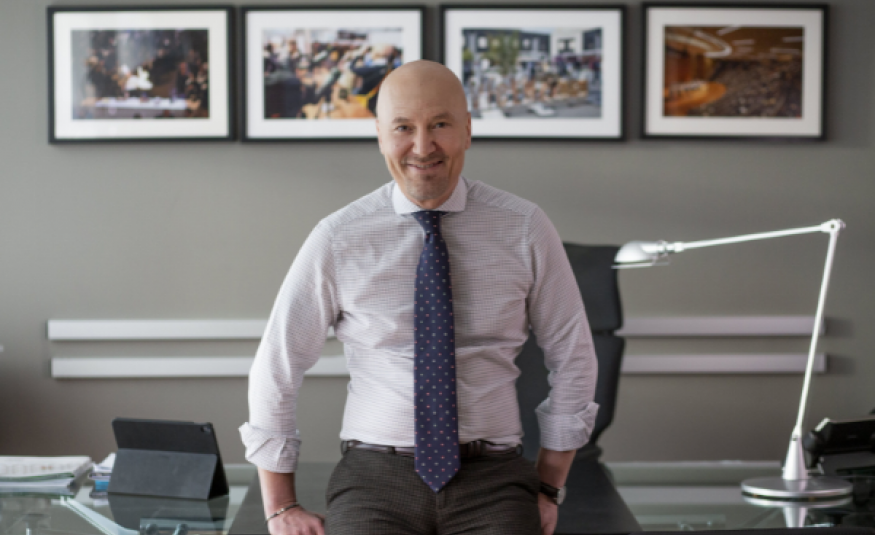Paul Colston talks to Italian Exhibition Group (IEG) CEO Corrado Peraboni:
What steps are being taken towards a safe reopening of your exhibition business?
In September we were finally able to re-open our Rimini and Vicenza venues with two important shows on machinery for the fresh produce sector and VicenzaOro, both with encouraging results. We were able to host our customers safely thanks to adopting the Green Pass and meticulous protocols. The biggest worry during the lockdown months was not losing contact with the communities which are the foundations of our shows.
We understand you have 10 shows on the books in September, could you tell me more?
The first trade shows were around 60-70% of the size of pre-pandemic editions (both in terms of exhibitors and visitors), but it has been a good re-start.
We are also focusing intently on Dubai: in just a few months, we acquired 100% of the Middle Eastern show leader in the wellness/fitness field, Dubai Muscle and Active, and have launched a partnership with Informa JGT Dubai, which deals specifically with gems, jewellery and the related technology. Next year, we will focus on consolidating these two trade shows and are scouting for new opportunities.
Our international expansion strategy continues in Mexico with an alliance with Deutsche Messe in the wellness field, and foresees a new market that we will be announcing by the end of 2021 and another in the first half of 2022.
IEG was the first exhibition company in Italy to develop the SAFE BUSINESS protocol in April 2020 and the Green Pass document was used at the Macfrut fair in Rimini and Vicenzaoro in Vicenza, is this correct?
Yes, it was essential in order to regain the exhibitor and visitor trust. At the end of September, 80% of Italy’s population was vaccinated and this was decisive for opening the shows. At the first shows, we provided rapid Covid tests for those who were not in possession of a Green Pass, but, fortunately, they were hardly used. Visitors and exhibitors now take it for granted that a pass will be required to go to a show.
IEG has also attained the GBAC STAR™ facility accreditation, right?
A lot depends on the procedures that the company is following when you begin the process. We were helped by already adhering to many of the best practices required for the accreditation. It is definitely an experience that we recommend.
How has IEG minimised the financial effects of the pandemic?
I would sum up in three points that allowed us not only to survive, but also to stay healthy. 1. At the beginning of the pandemic, IEG already had years of good results behind it and a solid financial situation. 2. Meticulous attention to costs, although, I am proud to say, we were not obliged to dismiss anyone. 3. We took advantage of every non-lockdown moment in 2020 to organise events. In 2020 we were the number one Italian group in terms of turnover.
With the recent publication of the Net Zero for Events initiative, how is IEG contributing to the push for a more sustainable events industry?
Perhaps the fact that we have been organising Ecomodo, the number one show for green and circular economy, for 26 years has helped. Ecological transition has been a daily practice in IEG’s centres for at least 20 years. As well as the UNI EN ISO 14001:2004 environmental management certification, the Rimini Centre has also been awarded with the international Elca ‘Construction and Green’ accreditation in Nuremberg. We have 1,500 trees and 30,000sqm of grass, irrigation systems exclusively use surface groundwater, fountains with water re-circulation and periodical emptying to irrigate the green areas and an enormous solar panel system on our roof. Three Expo Centre entrances have also been equipped with electric car charging towers for some time. We will shortly be starting the procedure for obtaining ISO 20121 certification which regards events sustainability management systems.
What lessons has IEG learned from the pandemic?
It is not the fittest that survive, but those that best adapt. Flexibility and agility have proved to be decisive and knowing how best to approach the market - which, for a few years, will return to event continentalisation, with all the consequences on which strategies to adopt in terms of internationalisation - is a winning move. In a word: exhibitors will travel more than visitors and, of course, we have all the changes induced by digital transition.





